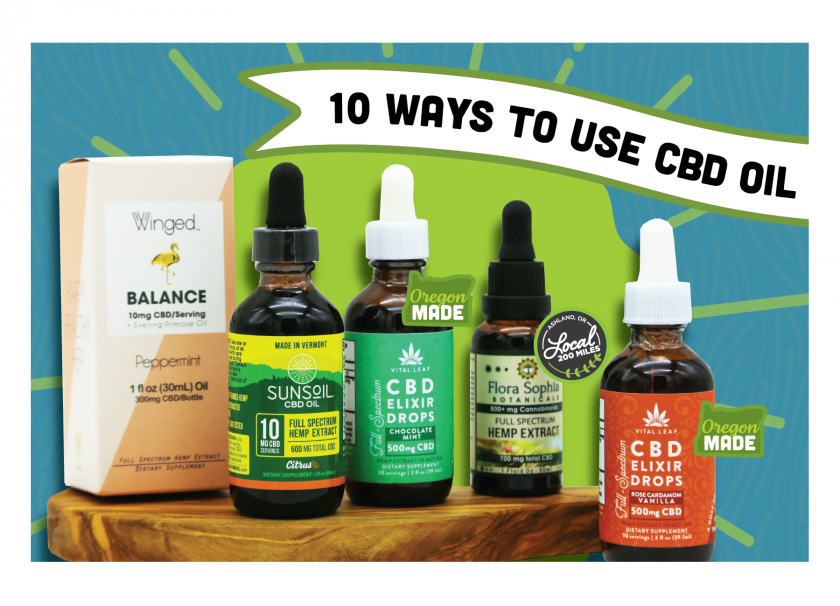
The state of plastics
Many Co-op owners and shoppers have shared their interest in reducing plastic usage in the store. From bioplastics, to compostable plastics to recycling options, the Ashland Food Co-op continues to research what works best as we move towards our goal of being a zero waste store. Here is where we stand.
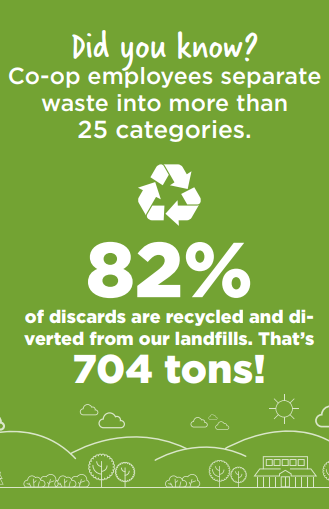
Right now, there is a trade-off in terms of food and plastic waste. Plastic is extraordinarily unique in its ability to preserve food and prevent spoilage and waste. But the trade-off is its very long lifespan.
Reducing plastic waste - by using alternative storage materials, or going package-free when possible - results in more food spoilage and waste, which can sometimes have a bigger ‘carbon footprint’ than plastic use alone.
The best way to summarize: as of March 2019, no perfect solution for plastic alternatives exist.
This isn't meant to make excuses for waste - as you may know, we already divert over 80% of our waste from the landfill. But it is important to know where things stand, and what some of the many decision-making factors are, that go into this debate about containers and plastic. Let’s break it down:
Bioplastics
Bioplastics often come from unsustainable sources - for example, monocropped GMO corn that could be used to feed people, or is grown on the other side of the country and requires a large carbon input to deliver.
As the name implies, bioplastics often have lifespans as long as petroleum plastics - they’re still plastic! The “end of life” assessment for bioplastics is not much better than petroleum plastics. For example, a single-use plastic fork made from GMO corn will still end up in the landfill.
Though there are recyclable and compostable bioplastics, they often require specialized machinery at waste disposal sites to be broken down. Our region does not currently have that infrastructure, and the additional carbon footprint to ship these materials elsewhere can quickly outweigh the ‘bio’ benefits.
The Co-op continues to explore options in this area: more readily compostable bioplastic bags are hitting the market which we will continue to test.
Alternatives to plastic
AFC has brought in cardboard packaging for some produce, like cherry tomatoes and strawberries. And yes, they are completely recyclable!
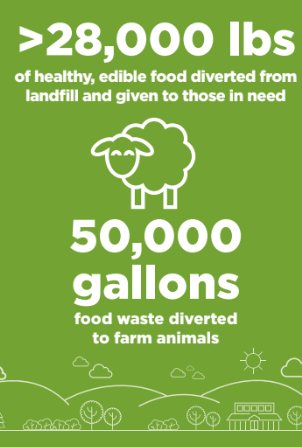
However, it can be difficult for customers to visually connect with the product - can you tell how juicy and ripe those strawberries are through the cardboard? Without that visual connection, a shopper may be hesitant to buy the product, inadvertently leading to more food waste (because the product stays on the shelf longer).
Cardboard also leads to more spoilage because of the lack of light and its ability to carry moisture (leading to molding).
Is generating more food waste an acceptable trade-off to having recyclable and compostable packaging? This is another instance where analyzing production inputs and requirements, instead of just ‘end-of-life’ issues for packaging, gives a better idea of the sustainability of a packaging type.
Plastics recycling
Many plastics are no longer being accepted by local waste management services. Generally, white, rigid plastics (example: yogurt containers) are still being recycled; clear, non-rigid plastics (soda bottles, salsa containers) are not. So buy smart!
Clamshells are a common area of concern. The Co-op is very lucky to be able to recycle plastic clamshells from products that were purchased at AFC. You can bring those clamshells back into the store for recycling. Even better, this recycling is more carbon neutral because the clamshells hitch a ride back to Eugene on existing truck routes (rather than a one-off transit run).
If you're purchasing greens, you can also bring your own container to fill from the bulk spinach and baby greens bins. Alternatively, OrganicGirl salad clamshells are made of 100% recycled plastic.
Our commitment
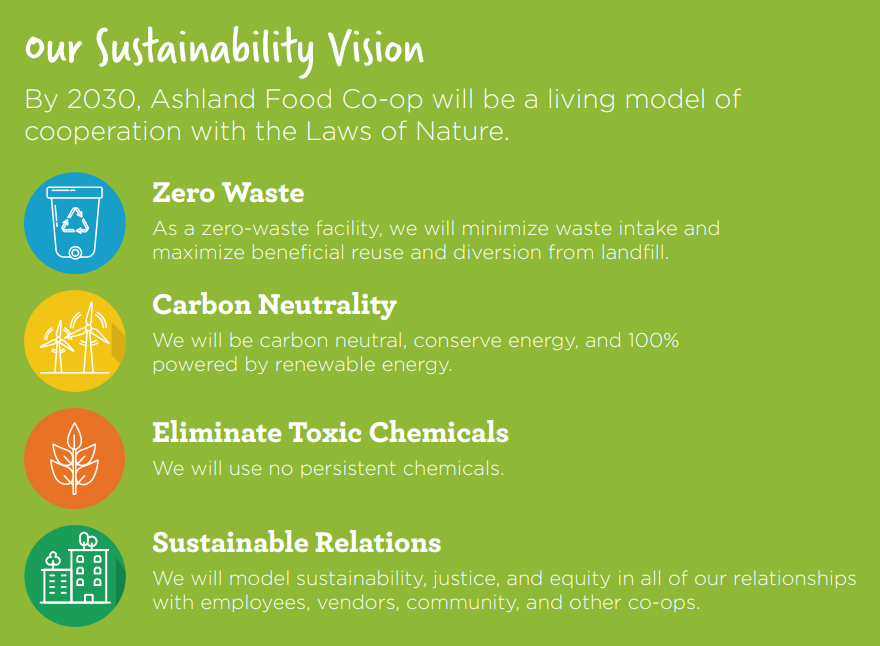
It’s easy to see that with the options available right now, there’s always a trade-off. In our own store and through the National Co-op Grocers network, we continue to look for a solution that is not petroleum-based, non-GMO, and that can be recycled or composted fully. When that solution arrives, we will be ready!
Right now, you should aim to reduce your overall plastic consumption when making purchasing decisions; choose reusable packaging when you do have to purchase plastic (clear salsa packages make great storage for leftovers); and choose recyclable plastic (white plastic and clamshells) if you think you’ll only get one use out of the packaging.
For some additional reading on the topic of plastics and packaging, check out this report put together by the Oregon Department of Environmental Quality.
More Co-op News
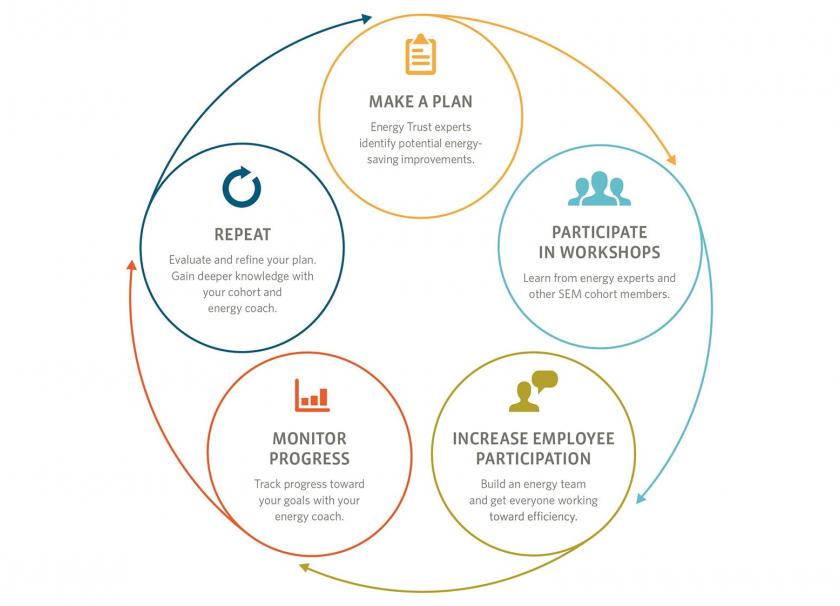
An update on Strategic Energy Management at the Co-op
By Nina Friedman, Strategic Energy Management intern
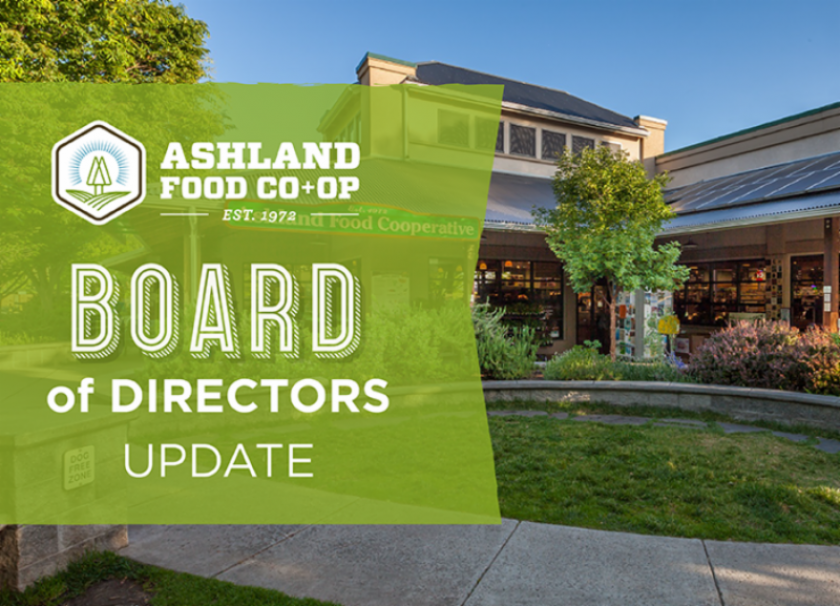
Open letter from AFC Board on Coronavirus Policies
The Ashland Food Co-op has played a critical role supporting our community for nearly 50 years by providing healthy food and a safe place to shop. With the recent COVID-19 shutdown, this support has been even more important and has stretched our organization in ways that we could not have anticipated. We have endeavored to address the needs of both our staff and our customers, hopefully in the most cooperative manner.
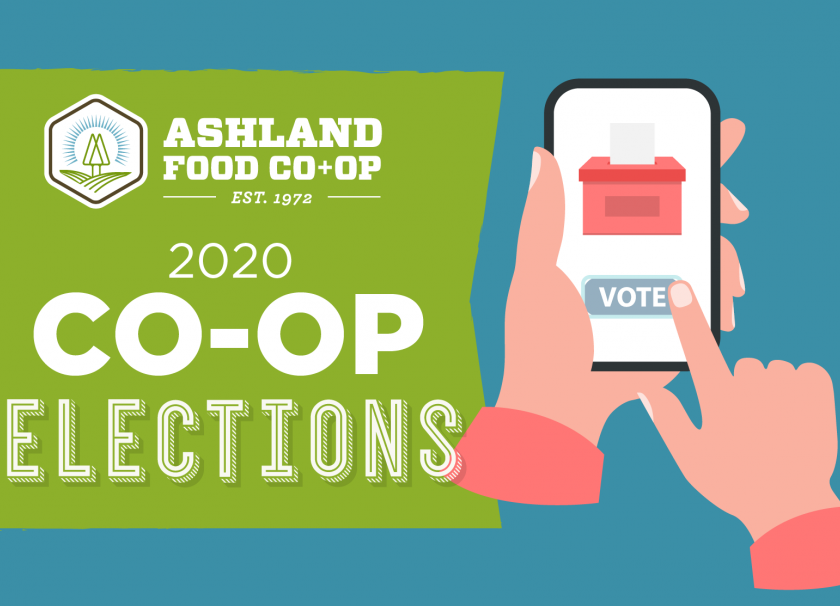
Owner Voting on 2020 Co-op Board & more
As an owner of the Ashland Food Co-op, you are an important decision-maker in the leadership of the Co-op! A vital part of your ownership is voting for the Board of Directors.
On the ballot: Vote for Board Candidates and Change for Good Organizations
Vote for Board Candidates
This year, four candidates are nominated for three Board positions: each elected Board director will serve a three-year term. The candidates are Ed Claassen, Mark Gibbs, Carolina Livi and Julie O'Dywer.
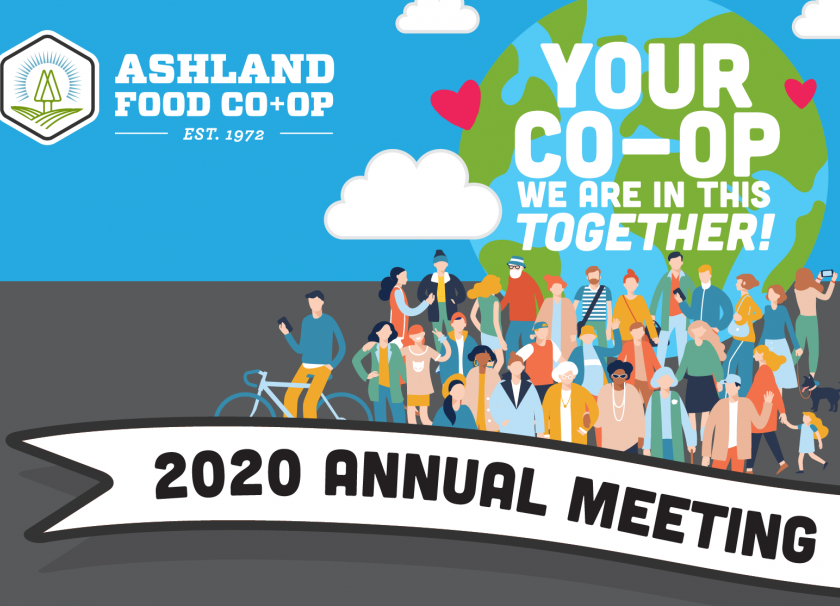
2020 Annual Meeting for Owners
Mark the evening of May 13 at 5pm on your calendar and join us for the 2020 AFC Annual Meeting. We’ll host the meeting online using Google Hangouts. Please click here to join the meeting, or call in at this number:
+1 617-675-4444
PIN: 719 680 293 2056#
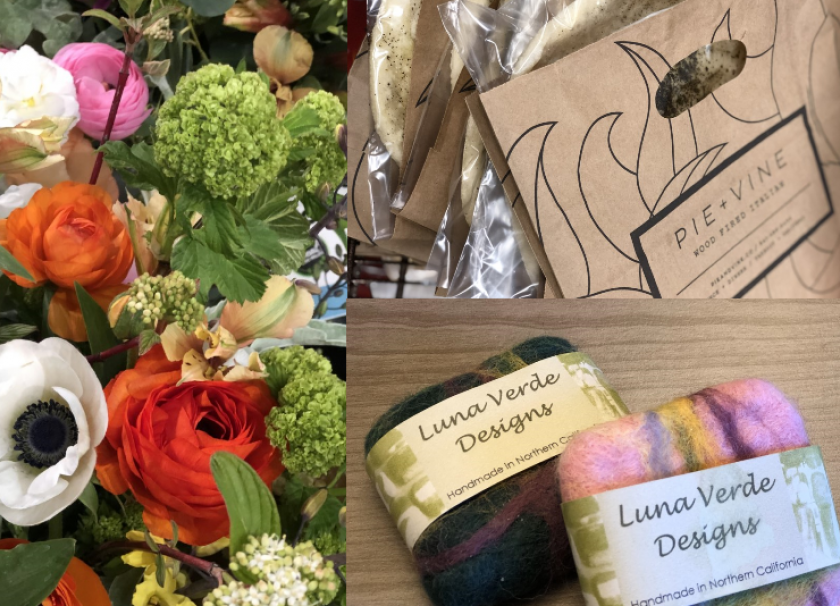
A dozen local favorites to explore this summer
The Co-op has always had a focus on supporting the strong local scene of growers and producers - and in these times, it's even more important. Here is just a small selection of some of our favorites from the area. Help support local businesses next time you stop by the Co-op by picking one of these products.

Unwavering Spirit in a Time of Change
By Emile Amarotico, General Manager
It’s been two months since my last update on our Co-op community, but it could just as well have been two years ago, or from an alternate reality! Needless to say, life at the Co-op has changed, and it hasn’t been easy for employees or shoppers. But despite the challenges, it has been an inspiring and reaffirming time that reminds us why we love the cooperative enterprise.
Staying Sustainable in A Changing World
By Rianna Koppel, Sustainability Coordinator
In the midst of a health crisis, how can we focus on sustainability? Let’s be real - these are tough times!
What does sustainability look like now? I like to refer to the definition of sustainability - meeting the needs of the present without compromising the ability of future generations to meet their needs. How can we meet the needs of the present, while keeping the future in mind?
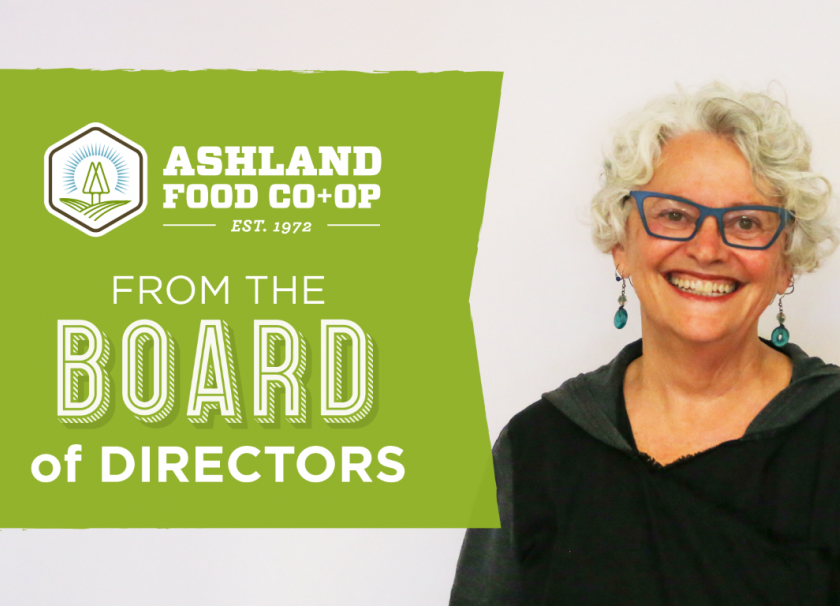
Democracy and Co-ops
By Annie Hoy, Board Director
This month, AFC Owners will democratically elect a slate of board candidates. These candidates are co-op owners, just like you and me. By holding annual elections, co-ops around the world and close to home are expressing Cooperative Principle 2: Democratic Member Control.
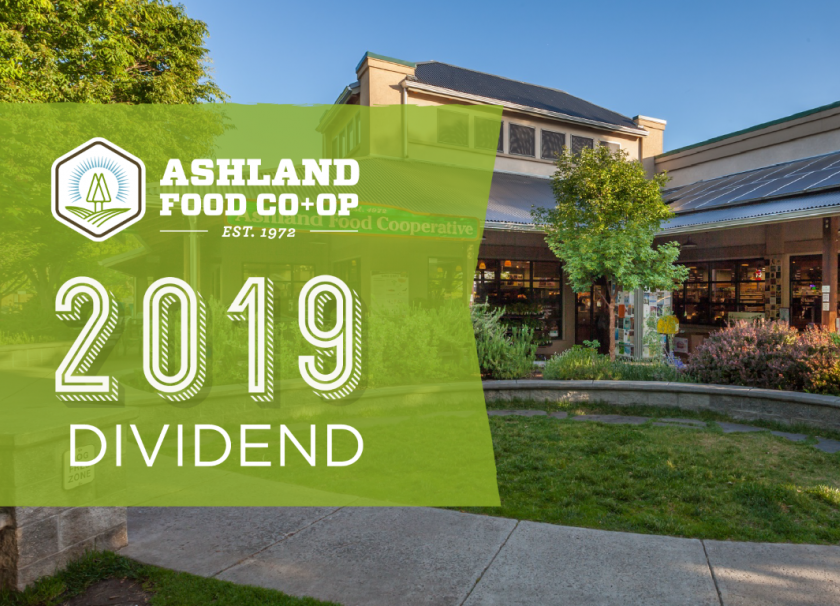
2019 Patronage Dividends are available now
From the Board of Directors:
This year, the Co-op Board of Directors is taking unprecedented action to distribute 100% of the over $628,000 2019 Patronage Dividend to our owners. In this time of great need, there is no holding back. This is not the moment to put away funds for the future, but rather to support our owners fully so that we may all have more strength to weather the storm.
Beans from Scratch
Michelle isn't serving up samples right now, so she's serving up kitchen tips instead! Here's her tried and true approach to cooking dry beans, plus some extra tips for upping your flavor, saving time, and cook other legumes. (Ingredients and modifications are below the video.)
Ingredients
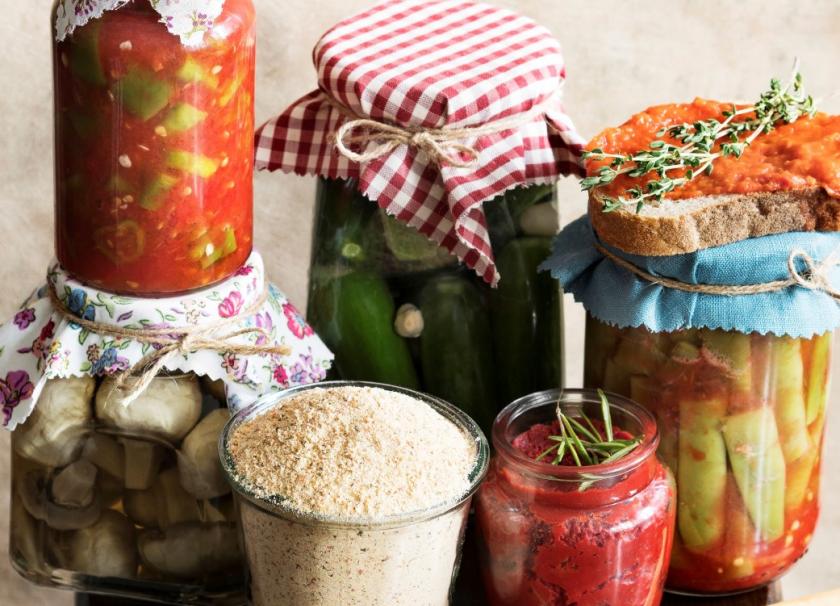
Tips to Stay Safe and Limit Waste
By Mahlea Rasmussen, Education Coordinator
Inspired by Bea Johnson's Zero Waste Home
We are in uncertain times and some of you may be second-guessing some of your zero waste practices and replacing them with safety measures for you and your family. I was proud not to have chemical cleaners in my home and never used plastic gloves - but now those products are being suggested for staying clean and safe. Here are some tips to keep your home safe while working towards more sustainability.

Ashland Food Co-op employees are heroes, worthy of respect and gratitude
Until a crisis like this occurs, few think of Grocers as essential service providers. However, our employees have been here day in and day out, risking their health and the safety of their loved ones, to provide food for our community. This is not a job that can be done from home or from what is now considered a safe social distance. Our employees have worked with the utmost professionalism, care, and concern for shopper well-being.
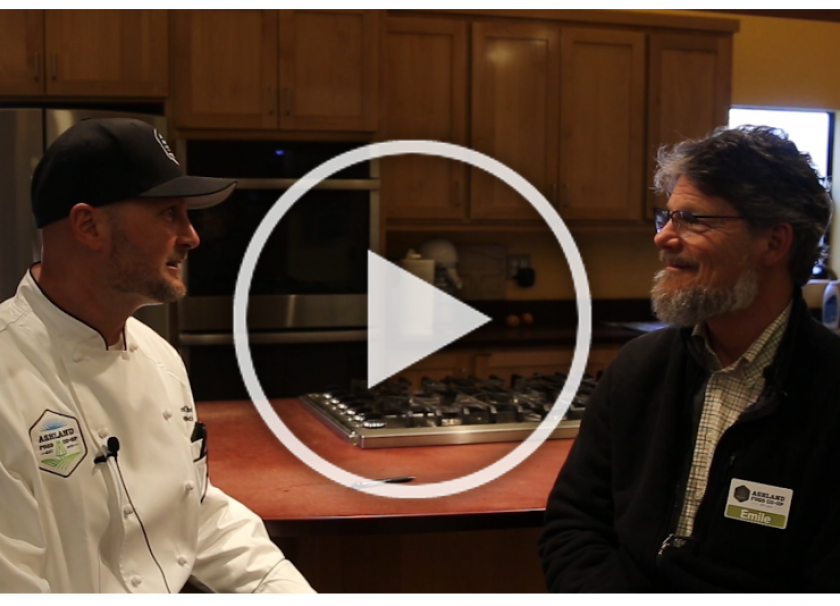
Meet Reagan Roach, AFC Executive Chef & Prepared Foods Manager
The Co-op's general manager, Emile Amorotico, sat down with the newest addition to the co-op's management team, Reagan Roach. Get to know Reagan in the interview below - and say hi when you see him in store!
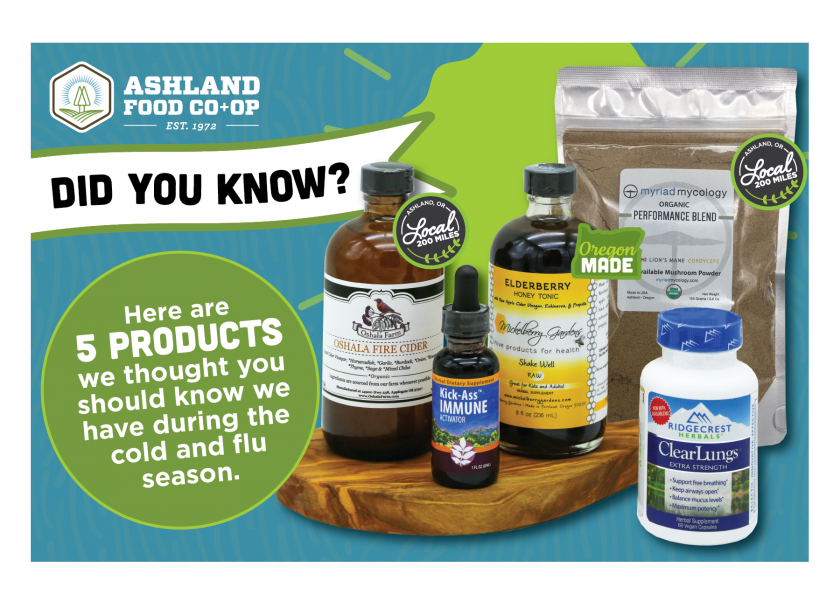
5 Things You Didn't Know the Co-op Carries for Cold, Flu & Immune Protection
- Wishgarden Herbs - Kick Ass Immune: Your total frontline immune defense!
- Oshala Farm - Oshala Fire Cider: Locally made in the Applegate. It tastes so good you could craft a healthy dressing with this fire cider!
- Mickelberry Gardens - Elderberry: Great Immune support for kids and adults. Made in Oregon.
